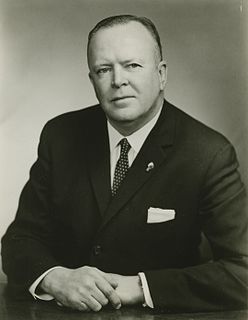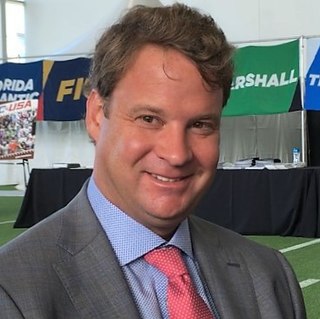A Quote by Jamie Dimon
Our investment bank looks like it does because its customers like our expansive network and want to do equity, debt, M&A, custody, move money, deposit money, et cetera.
Related Quotes
The Koreans that make their money in our community: If we have a Black bank, you'll find they don't deposit anything of what they take from us into a Black bank that would serve our community. They set up a bank in their own community. The Honorable Elijah Muhammad, my Teacher, called people like this "Bloodsuckers of the poor." All they want is to make a dollar, and run.
As bank customers, we tend to believe that we can have both perfect security for our money, drawing on it whenever we want and never expecting it not to be there, while still earning a regular rate of return. In a true free market, however, there tends to be a tradeoff: you can enjoy a money warehouse or you can hope for a return on your investment. You can't usually have both. The Fed, however, by backing up this fractional-reserve system with a promise of endless bailouts and money creation, attempts to keep the illusion going.
The best way to look at any business is from the standpoint of the clients. So there are these certain basic things that aren't going to change. Companies are going to have needs for equity, debt, advice, FX, and derivatives. Individuals are going to have needs for auto loans, mortgages, something that looks like a deposit account, and the ability to send money to people. Those things aren't going to change.
Then came the second Amsterdam discovery, although the principle was known elsewhere. Bank deposits...did not need to be left idly in the bank. They could be lent. The bank then got interest. The borrower then had a deposit that he could spend. But the original deposit still stood to the credit of the original depositor. That too could be spent. Money, spendable money, had been created. Let no one rub his or her eyes. It's still being done-every day. The creation of money by a bank is as simple as this, so simple, I've often said, that the mind is slightly repelled.
We want our users to use the Found Money feature so they can get extra money while they shop, which will be invested in their future. And that's a powerful idea for our customers, and it is a powerful idea for brands because from their perspective they are increasing loyalty for their brands by investing in their customers' future. And of course it helps us grow our business.
As a matter of fact 25% of our U.S. investment banking business comes out of our commercial bank. So it's a competitive advantage for both the investment bank - which gets a huge volume of business - and the commercial bank because the commercial bank can walk into a company and say, "Oh, if you need X, Y and Z in Japan or China, we can do that for you."
If all the bank loans were paid, no one could have a bank deposit, and there would not be a dollar of coin or currency in circulation. This is a staggering thought. We are completely dependent on the commercial banks. Someone has to borrow every dollar we have in circulation, cash, or credit. If the banks create ample synthetic money we are prosperous; if not, we starve. We are absolutely without a permanent money system. When one gets a complete grasp of the picture, the tragic absurdity of our hopeless situation is almost incredible - but there it is.

































